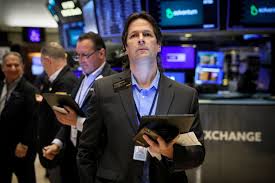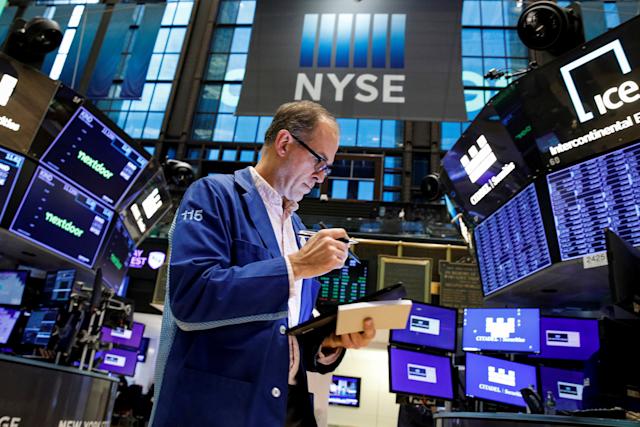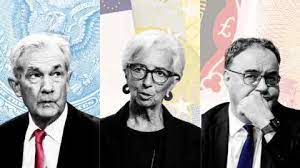The war in Ukraine has tended to increase uncertainty regarding inflation and growth prospects. When and with what consequences this war will end is pure speculation, but capital markets are expected to build a certain immunity to the headline risks in the coming weeks. The medium- to long-term consequences, on the other hand, could be significant. It is possible that we are at the beginning of a new bloc formation or a new Cold War. This would put a significant damper on globalization and further fuel higher structural inflation.
US equities ended Thursday’s session in the green as the markets digested a host of economic and earnings data. The economic calendar was heavy yesterday, as Q4 growth was higher than expected, jobless claims unexpectedly fell, new home sales rose, and durable goods orders jumped. The Dow Jones Industrial Average was up 0.6% to 33,949, the S&P 500 Index rose 1.1% to 4,060, and the Nasdaq Composite climbed 1.8% to 11,512. Markets in Europe were also higher for the most part, adding to the region’s strong start to the year.
Summary as at 27.01.2023
- Asian equity markets rose on Friday, as better-than-expected Q4 US GDP numbers raised hopes of a soft landing on the world’s largest economy. Investors also digested data showing Tokyo inflation exceeded forecasts in January, while Australian producer prices slowed sharply in Q4. Shares in Australia, Japan, and South Korea all gained, while Hong Kong equities fell.
- European equity futures pointed to gains for the region’s blue chips when markets open Friday while their US counterparts were seen more cautious in the early hours of the morning.
- Oil prices edged higher this morning, extending recent gains amid hope of continued demand recovery in China and as better-than-expected Q4 US GDP numbers raised hopes of a soft landing in the world’s largest economy.
- The US economy expanded 2.9% on quarter in Q4, slowing from a 3.2% growth in Q3 but above expectations of 2.6%. The positive contributions came from private inventory investment, consumer spending, federal government spending, state and local government spending, and nonresidential fixed investment while residential fixed investments and exports decreased.
- Durable goods orders in the US soared 5.6% month-over-month in December, well above expectations of a 2.5% increase, and versus the prior month’s positively revised 1.7% drop. This was the sharpest gain since July 2020.
- The number of Americans filing new claims for unemployment benefits fell by 6,000 from the previous week’s downwardly revised value to 186,000 on the week ending January 21st, the lowest since April, and well below expectations of 205,000. The result further consolidated evidence of a tight labor market despite elevated tech layoffs and the Federal Reserve’s aggressive tightening path last year.
- LVMH raised its annual dividend by 20% after delivering a second straight year of record sales and profits driven by its main brands Louis Vuitton and Dior. Owner Bernard Arnault said in a statement on Thursday that LVMH was “going into this year with confidence” despite the uncertainties weighing on the global economy, and added that he believed LVMH could continue growing as it did in 2022.
- American Airlines on Thursday forecasted sharply higher profit for the full year and bet estimates for quarterly earnings on buoyant demand for air travel. The carrier expects an adjusted profit of $2.50 and $2.50 and $3.50 per share for 2023, up from 50 cents per share a year earlier. Industry executives continue to say that they don’t see any signs of slowing demand in the face of a potential slowdown.
- Visa reported a rise in Q1 profit after the market close yesterday, helped by a jump in payment volumes as consumer spending held up despite a slowing economy. Revenue rose to $7.94 billion versus Wall Street expectations of $7.69 billion. Adjusted EPS came in at $2.18 versus estimates of $2.00. Visa also said effective February 1st, Ryan McInerney will be taking over as CEO.
- Mastercard also came out with their quarter results yesterday that came in ahead of the Street’s expectations. Adjusted EPS rose to $2.65 a share from $2.35 a year earlier, while the consensus was for $2.58. Revenue was up 12% on a reported basis of $5.82 billion, just ahead of the consensus view.
- Intel gave one of the gloomiest quarterly forecasts in its history after a personal computer slump ravaged the chipmaker’s business, sending shares tumbling and further setting back turnaround efforts. The company predicted a surprise loss in the current period and a sales range that missed analysts’ estimates by billions of dollars. At the low end of Intel’s projections, revenue would be the smallest quarterly total since 2010.
- Chevron announced that it will increase its quarterly dividend by about 6.0% to $1.51 per share and that it will repurchase $75.0 billion of its shares.






